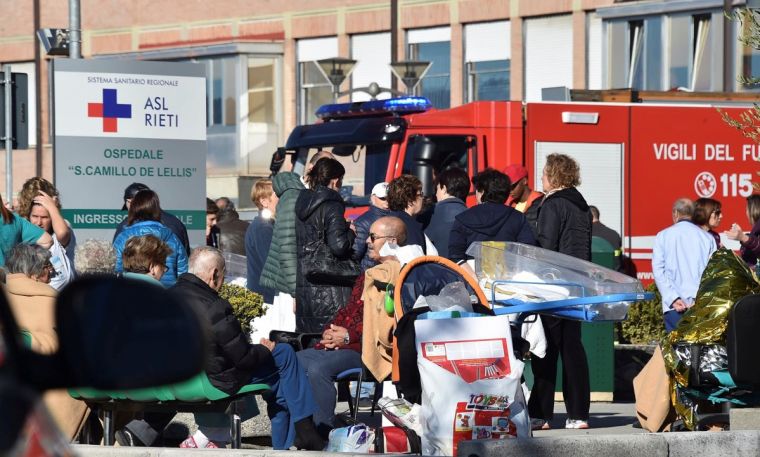Ancient Basilica Devastated By Italy Earthquake, Say Monks

A strong earthquake measuring 6.6 magnitude struck central Italy on Sunday, causing the collapse of more buildings in small cities and towns already shaken by tremors in the past two months, although there no immediate reports of casualties.
It was a bigger quake than one which hit central Italy on August 24, killing almost 300 people. There have been thousands of aftershocks in the weeks since then, including two particularly strong tremors last Wednesday.
Italy's emergency services said there was serious damage in multiple locations in the central regions of Marche and Umbria on Sunday. State broadcaster RAI said three people were rescued from rubble in the town of Ussita, but there were no reports of deaths.
The ancient Basilica of St. Benedict in the walled town of Norcia, almost 100 kilometers from Perugia, was devastated by the quake, the monks said. Images on television showed one side of the church reduced to rubble, and another church in the town center also collapsed.
Local authorities said many towns and villages already battered by the 6.2 quake in August had seen further significant damage.
"This morning's quake has hit the few things that were left standing. We will have to start from scratch," Michele Franchi, the deputy mayor of Arquata del Tronto, told Rai television.
Many of these places were evacuated after the August disaster and were largely deserted on Sunday morning when the quake hit at around 7.40 am (2:40 am ET)
The earthquake was felt as far north as Bolzano, near the border with Austria and as far south as the Puglia region at the southern tip of the Italian peninsula.
It was also felt strongly in the capital Rome, where transport authorities closed down the metro system for checks.
Italy sits on two fault lines, making it one of the most seismically active countries in Europe.
Before this year, the last major earthquake to hit the country struck the central city of L'Aquila in 2009, killing more than 300 people.
The most deadly since the start of the 20th century came in 1908, when an earthquake followed by a tsunami killed an estimated 80,000 people in the southern regions of Reggio Calabria and Sicily.











